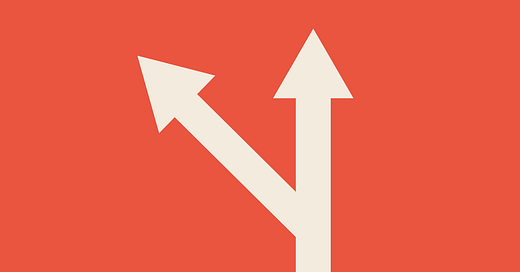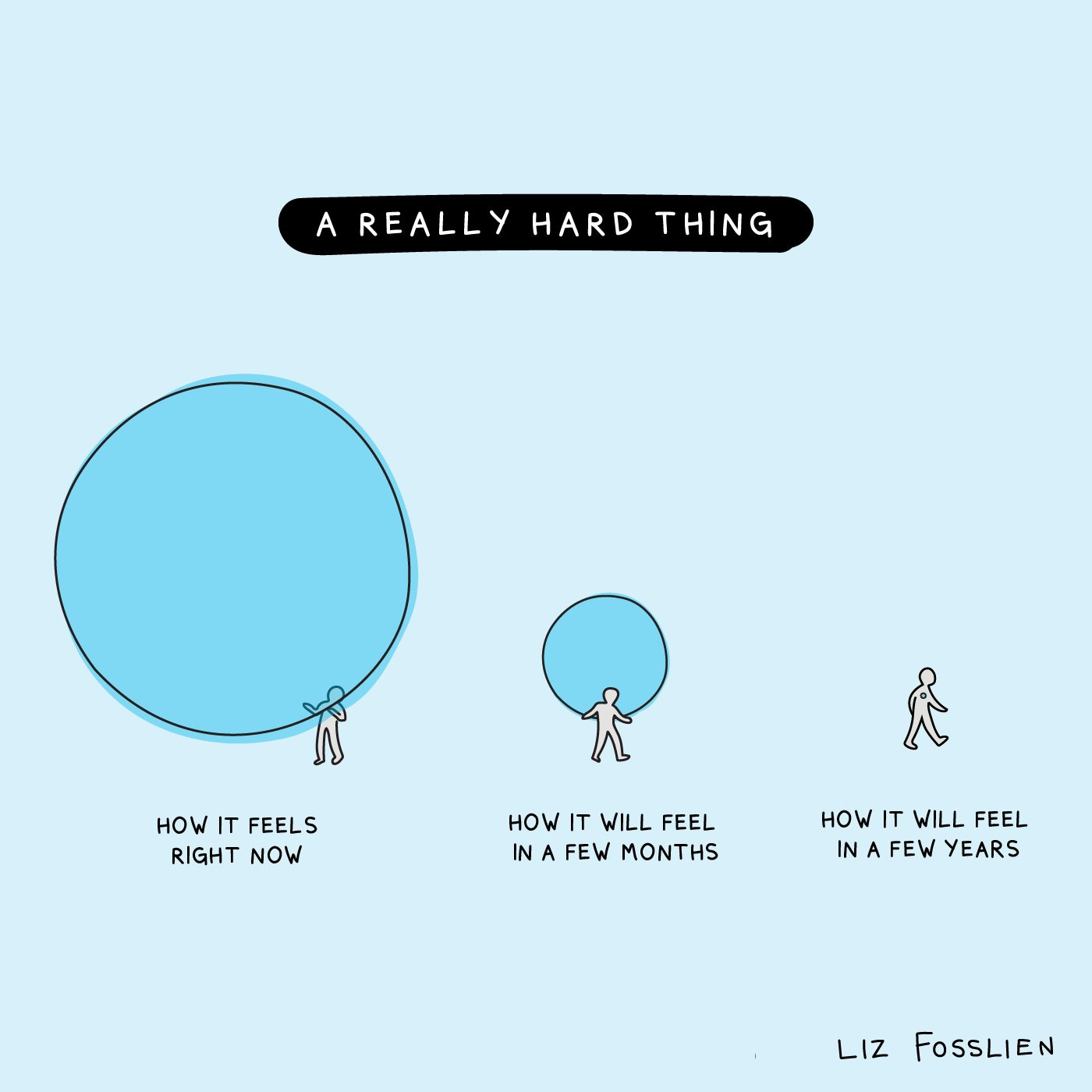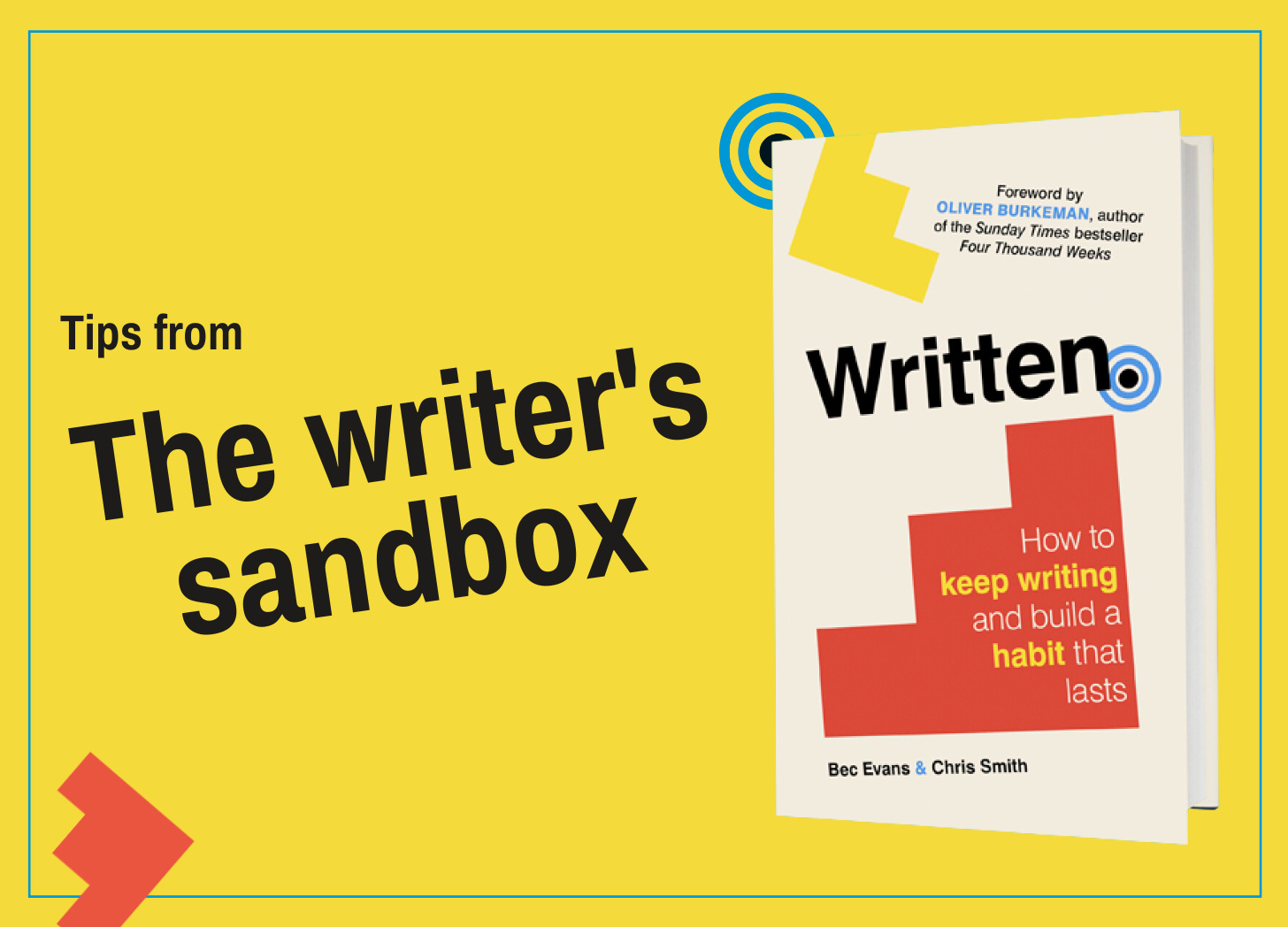Why choose to do hard things?
When a crisis of confidence hits and you want to give up - the benefits of keeping going. A month of resilience-themed posts.
It was around the summer of 2021 that I said to Bec that we should give up writing our book Written. I was tired, fed up and sick of the whole darn thing. I distinctly remember being on the verge of calling the publisher to say that we wanted to hand back the advance we’d been paid.
It was all far harder than should be - that was how I felt at the time. Everything was going wrong. The book was a hot mess. It was draining all our time – time we could have spent earning actual cash. We were neglecting the business. Mortgage payments were creeping up, cash wasn’t coming in and there was illness in the family. Oh, and the was the little matter of an ongoing global pandemic to contend with too.
Why do we do hard things?
When you’re experiencing a crisis of confidence it’s easy to wonder whether doing the hard thing you’re doing is really worth it.
What’s the point, nobody’s going to read it anyway? Why don’t we do something easier? Do people think we’re crazy? And so on.
Now of course, asking yourself these kind of soul searching questions can be valid. And yes, probably a few people do think you’re crazy too.
But what, in hindsight, I’ve come to realise is that choosing to do a hard thing – of which writing a book is just one example – can have a positive, long-term impact on the rest of your life. Why? Because choosing to tackle a really tough thing builds your resilience long term. It puts other things in your life into perspective and makes you better able to cope when things go wrong.
What five things would you tell an aspiring author?
1. Write a lot.
2. Find what you like writing.
3. Write it a lot.
4. Find someone who publishes writing like yours.
5. Keep writing even if everyone hates it.
– David Quantick, BAFTA-winning comedy writer, best-selling author.
Bouncebackability
Coming from the Latin resilire ‘to rebound’ resilience is the ability to bounce back. In engineering, the most resilient materials are not the strongest ones, but rather the most flexible ones that are able to respond to shocks.
Being resilient isn’t about toughing it out, nor does it stop difficult things from happening, but the promise of resilience is that it helps us to recover from difficulties and adapt in response to adversity rather than give up.
If you only ever stay in your comfort zone and do easy things that don’t push you you’ll find it harder long term to cope with the inevitable challenges that life will throw your way.
Don’t sweat the small stuff
When you’ve chosen to endure something and proven to yourself that you can do it or when you taken on something at the edge of your abilities and succeeded - it makes the small stuff seem less of a sweat.
So, the next time you question whether it’s worth carrying on with whatever hard thing you’ve chosen to take on remember that doing the hard thing itself can bring benefits. It is worth doing a hard thing because doing it can be an end in itself.
If you’re a regular reader of this newsletter you might know that we’re theming our posts each month around a chapter of the book. You might have guessed that this September we’re onto chapter nine ‘resilience’ and we’ll explore more over the next few weeks.
Keep writing,
Chris and Bec
As always, Liz & Mollie say it best. Credit @lizandmollie
How to take advantage of the ‘cliffhanger effect’
Did you know we post writing tips every Monday? This week we investigate the productive benefits of stopping mid-sentence. Ernest Hemingway did it to avoid feeling stuck the next day. Give it a go!









Thanks Chris. It helps to know I'm not the only person to say, "why did I ever start this?" I also think, for me anyway, I have way too many books, webinars, newsletters, notifications, classes, writing groups, (ad nauseam) that are driving me slightly round the twist. All these possible groups, avenues, voices, too much for my delicate brain! I suppose stepping away from the whole mess might be helpful. Certainly better than what's in second place, which is bashing my head against a wall!
Hello Chris, Boy, can I relate to the feeling of "let's just chuck this whole idea of writing a book in the bin and never think about it ever again." I'm at that point, but without a Bec to say, "it'll be OK, if we can live through this." Actually, I do get your point about how doing hard things builds resilience, but sometimes, ya gotta wonder. When the tank is dry, the tank is dry.